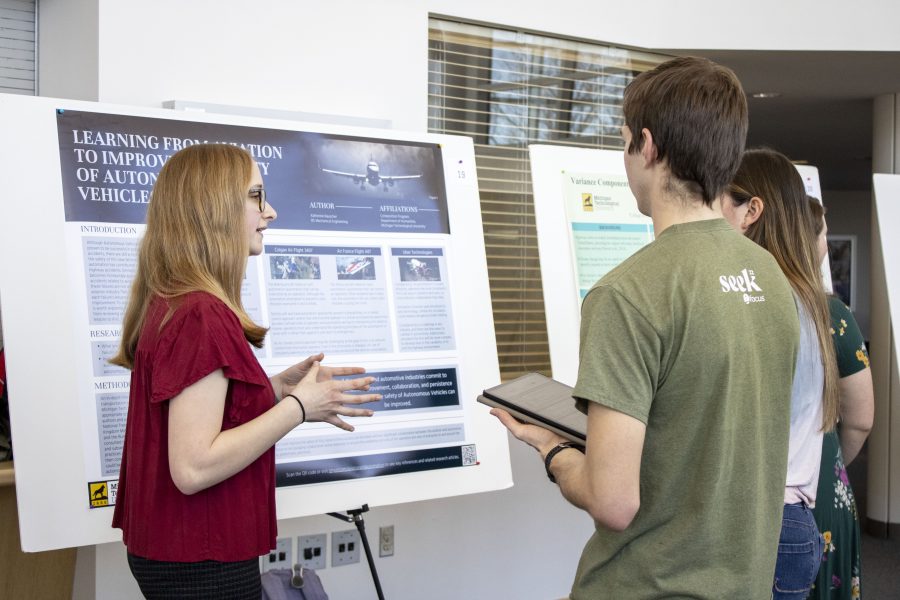Winners Announced: Undergraduate Research & Scholarship Symposium
The Pavlis Honors College hosted the Undergraduate Research & Scholarship Symposium (URSS) last Friday (March 24) in conjunction with the Great Lakes Research Center (GLRC). The event featured a panel discussion in which participants discussed how undergraduate research impacted their present work, two poster sessions and a networking social event that culminated with the announcement of the award winners. In addition to Michigan Tech students, students from the Keweenaw Bay Ojibwa Community College shared their work during this year’s URSS.
Thanks to the Portage Health Foundation and the DeVlieg Foundation for supporting the Undergraduate Research Internship Program as well as to the faculty, staff and graduate students who served as judges for the event.
The winners of the 2023 Undergraduate Research & Scholarship Symposium include mechanical engineering student Katherine Rauscher for her poster “Learning from Aviation to Improve the Safety of Autonomous Vehicles.” Rauscher’s poster was selected for the Audience Choice Award. Rauscher’s faculty advisor was Marika Seigel from the Department of Humanities.
By the Pavlis Honors College.
Extract from the URSS Booklet 2023:
Learning from Aviation to Improve the Safety of Autonomous Vehicles
Student Presenter: Katherine Rauscher, Mechanical Engineering
Faculty Advisor: Marika Seigel, Department of Humanities
Although Autonomous Vehicles [AVs] have proven to be successful in preventing human error accidents, there are still a myriad of concerns with the safety of this new technology considering automation has contributed to some modern highway accidents.
An in-depth literature review of previous highway and aviation accidents pertaining to automation was conducted using the Michigan Tech Van Pelt and Opie Library search tools to find appropriate scholarly sources from a variety of authors and perspectives.
This research revealed that the safety of AVs may be improved by emulating the aviation industry and taking actions such as implementing event recorders, encouraging safety collaboration, pursuing shared control, defining the roles of man and machine, improving automation understanding, combating complacency, and developing effective simulators.
